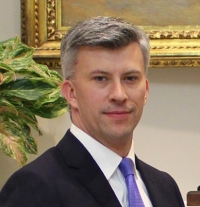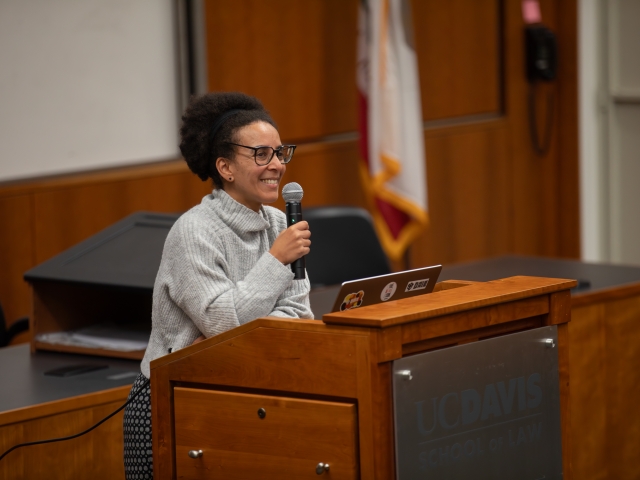Upcoming 2025–26 Events
Please visit Past Events for recordings.
Technology and National Security Lawyering: A Conversation with John Dermody
Monday, Nov. 3, 2025 | 12 – 1 p.m. | King Hall, Room 1301 | In-Person Only

John Dermody is the Deputy Chief Counsel for the CHIPS Program Office at the Department of Commerce, which is responsible for providing $39 billion in incentives to support the US semiconductor industry. Before joining Commerce, John was a Counsel at O’Melveny & Myers, where he litigated false claims act cases and advised on national security, cybersecurity, data privacy, and federal grant administration issues. He previously served as a Deputy Legal Advisor for the National Security Council, where he advised the National Security Advisor, the White House Counsel, and the White House Chief of Staff on matters related to cybersecurity, intelligence activities, infrastructure protection, disaster response, and border and transportation security, among other issues. He also served in the General Counsel Offices of the Department of Homeland Security and the Department of Defense.
Co-sponsored with the Center for International Law and Policy. Lunch provided.

Kyung Sin Park, Professor of Law at Korea University Law School and Co-founder and Director of Open Net
Monday, Jan. 26, 2026 | 12 – 1 p.m. | King Hall, Room 1301
Please enjoy photos and recordings from our Fall 2025 Speaker Series.




